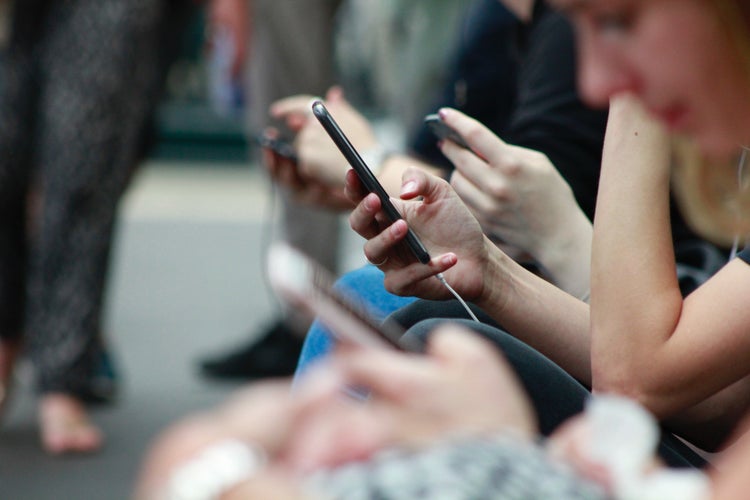*TRIGGER WARNING: SELF-HARM AND SUICIDE*
In honor of National Suicide Prevention Month, I thought it would be important to share how asking for help saved my life. While mental health is never easy to talk about, I find that the more we do, the more people are willing to reach out to get the help they need.
I find the easiest way to start this conversation is by jumping in, so here I go. The first time depression affected me was at the age of 16. I never understood where it came from, but it hit me like a truck. I think this is what scared me most. I did not understand why I felt like this, and the first time I talked about it, I did not get the support I had expected. I told someone very close to me how I was feeling, but they told me I cannot feel like that, I shouldn’t, that I had so many good things and I had no right to be sad. They were right — or so I thought.
So I shut up. If the one person I loved the most told me I had no right to feel like that, why would I believe otherwise? I did not reach out at all after that for years. Not until I was 20. Those four years were the worst I have ever experienced. There were highs and lows, and some extremely low lows. I found myself contemplating if I even wanted to live, wondering why I was trying so hard at school, making friends, and so much more if I never saw myself living past the next year. I fell into a deep spiral. I cut off friends and family and started self-harming as a way to express my emotions. Social media told me it was normal.
All over the internet I saw glorified self-hatred, self-harm and depression. So many comments talking about killing themselves, telling others to hurt themselves or how they didn’t deserve to live, and how we are all depressed. I thought I was just another person and this is how we felt. After my first attempt at suicide, I realized how bad it truly was. Yet, I was still scared since I was told before that I had no right to feel like this.
Fast-forward four years and COVID-19 hit. I never got out of my depression, but I never tried to commit suicide again until quarantine. I was stuck inside, not being able to distract myself with friends, school, or sports, and I was scared.
I had all this time to focus on everything I hated about myself, and I saw no other way. The self-harm picked up and so did the thoughts of suicide. I still never understood what was ‘wrong’ with me. Why was I so sad? I had no right to be, or so I was told. It took months of this hopelessness to finally break me into trying again. I spoke to the same person who told me I had no right to be depressed, and their words were not what I would have expected. They told me they did not remember what happened. They didn’t remember telling me what I was feeling was unjustified, and that made me sink further. How could these words that stuck with me for years, telling me I had no right to my emotions, be a forgotten memory of my loved one? This time, they did not say that. Instead, they apologized and offered help they could not give: therapy.
Not everyone you talk to can be the listener you need. This is why therapy is so important. Growing up with family and friends who didn’t talk about sadness or how they were feeling, I found having someone disconnected from my life to talk to each week allowed for me to practice this skill and get out my emotions.
Time went on, the therapy sessions got more in depth, and we exhausted the search for the root of my depression, but I still could not get out of this overall sorrow. Talking to someone helped tremendously and I am sure that for some, therapy is what they need. Although talking helped me so much, I still could not shake how I felt. This is when my therapist brought up medicine.
This scared me, and I said no at first. I thought I could fix it on my own. A few more weeks of self-harm and this feeling of sorrow continued, and I decided to go against my initial judgment. I found society has ingrained in me that medicine was an easy way out and that I should be ashamed. I’ve hidden the fact that I was even talking to a therapist from my family and friends for a long time, since I also thought of it as taboo. I thought it through and decided to start medicine.
My world was flipped upside down and I’ve never been happier. It is not that I am in the clouds 24/7 and there is always a smile on my face, but instead, my whole general mood is lifted and my lows are not as low. Of course, I still get sad. Things in life happen and sadness is a normal emotion. Instead, I no longer go into deep depression like I used to. I can experience sadness and move on. The thought of being reliant on medicine is still scary, but at the end of the day it does not matter what it takes to make me happy, it just matters that I feel this way.
And as my mental health journey continues, I am proud that I have come so far to be able to share my experience and hopefully help others. I urge everyone facing these struggles to start talking to someone, even family or friends. If they are not the support you need, go to therapy. There is always someone willing to help you and be the support you need.
Can’t get enough of HC UMass Amherst? Be sure to follow us on Instagram, listen to us on Spotify, like us on Facebook, and read our latest Tweets!




